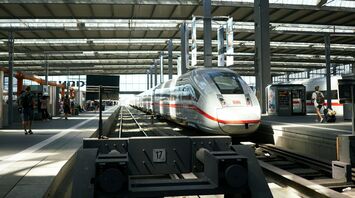The Future of Travel in Europe: High-Speed Trains as an Alternative to Air Travel

Europe is gearing up for a major transformation in the travel sector: by 2050, a unified high-speed rail network is expected to connect all major cities across the continent. This project is set to become a key step for travelers who prefer environmentally friendly modes of transportation and aim to reduce their carbon footprint.
Trains vs. Planes: A New Era for Tourists
For travelers in Europe, railways may soon become a more attractive alternative to air travel. While planes are currently more popular due to their affordability and ease of ticket purchase, rail travel has several advantages, especially with the EU’s increasing focus on climate policies. Train journeys not only offer a greener way to travel but can also provide more comfortable conditions for tourists, who appreciate minimal delays and simpler border checks.
At present, international rail routes face several challenges, such as a lack of unified standards and poor coordination between countries. However, with efforts from the European Commission and national governments, a unified system is planned to overcome these barriers, making rail travel more convenient for tourists.
New Horizons for Travelers
High-speed trains will allow tourists to travel across Europe with ease, enjoying scenic views and efficient routes without the long hours spent waiting at airports. These trains are expected to operate between major cities like Paris, Berlin, Rome, and Madrid, significantly reducing travel times. For example, the journey from Brussels to Berlin will take just a few hours, making such routes more appealing for travelers who value comfort and flexibility.
A Green Path for Future Generations
The primary advantage of rail travel is its contribution to reducing carbon emissions. Unlike airplanes, which remain a major source of greenhouse gases in the transport sector, trains are considered an environmentally friendly mode of travel. In the context of fighting climate change and transitioning to more sustainable travel methods, trains are becoming the priority choice for eco-conscious travelers.
In the long run, the development of a high-speed rail network will not only make travel in Europe more sustainable but also significantly more convenient. Tourists will be able to discover new cities, easily cross borders, and plan trips across the continent without the complexity of air travel.



















